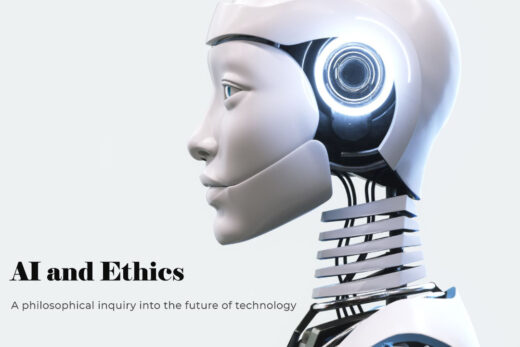Artificial Intelligence (AI) continues to influence our lives in more ways than we often realize. But, just as Robert Oppenheimer once lamented after the development of the atomic bomb, “We knew the world would not be the same”, the union of AI and privacy could lead us down a similar path.
How AI Influences Privacy
In this digital era, we are generating a monumental amount of data that continues to double every two years. AI thrives in this data-rich environment, continually refining and enhancing its ability to learn and predict. However, the same power that enables AI’s remarkable achievements also raises significant privacy concerns. The intersection of AI and privacy, particularly concerning personal data use, has become a significant concern demanding our attention.
Facial Recognition: When Convenience Clashes with Privacy
The intersection of AI and privacy is more apparent than ever in facial recognition technologies. Imagine this: you step into an airport, and even before you present your ID, your identity is known. Your face becomes your passport. It’s convenient, but George Orwell’s famous quote from ‘1984‘ echoes ominously, “Big Brother is watching you.” In our quest for security and efficiency, are we giving up our right to privacy?
This complex dilemma was illustrated starkly in the 2020 case of Clearview AI. The company had assembled a database of over three billion images, scraped without user consent from social media platforms and websites. Their facial recognition system, mainly used by law enforcement, matched an individual’s photo to this database, revealing their public images and their sources.
Clearview AI defended their practices as legally sound and beneficial for solving crimes. However, they faced an outcry from privacy advocates and lawmakers and cease-and-desist orders from multiple platforms, including Facebook, LinkedIn, Twitter, and Instagram.
The Clearview AI case encapsulates the ongoing tug-of-war between the security benefits of facial recognition technology and the inherent right to privacy. As we progress deeper into the AI-era, these ethical considerations demand thorough examination. To delve deeper, explore our comprehensive article on AI and Ethics.
Walking the Ethical Line with AI and Privacy
AI is not just about raw data processing; it’s about the ramifications of decisions made autonomously that can significantly impact society. This brings to mind Albert Einstein’s sage advice: “Concern for man and his fate must always form the chief interest of all technical endeavors.” What are the principles that govern privacy in the AI domain? And more importantly, are these principles respected when AI learns, adapts, and decides?
These concerns become even more critical when we consider the potential for AI to develop consciousness. To delve into this concept, check out our article on AI Consciousness.
Law in the Age of AI: Charting New Privacy Territories
Navigating the legal frameworks of AI and privacy is like exploring uncharted territory with an outdated map. Our existing laws are largely unprepared for the challenges posed by AI. Here, Isaac Asimov’s Three Laws of Robotics come to mind, especially the first one: “A robot may not injure a human being, or through inaction, allow a human being to come to harm.” These laws were proposed for robots, but how can they be reimagined and applied to AI in the context of privacy?
AI and Privacy: Complicated Crossroad or Clear Pathway?
While the junction of AI and privacy seems complex, it also opens up opportunities for us to reframe our social and legal frameworks in response to digital advancement. Consider the impact of AI in healthcare: it has revolutionized the field by identifying patterns in medical data, thereby aiding early disease detection. However, while this is a significant step forward, it also triggers serious privacy concerns.
While handling sensitive medical data, we must ensure robust privacy protocols are in place to prevent misuse and to maintain the trust of individuals. Consequently, it is crucial that we adapt to this new technology landscape by developing privacy-preserving AI models and effective laws that offer protection without stifling the potential benefits that AI can bring to various fields.
Conclusion
It is important to find a balance between the benefits of AI and the need to protect privacy. As AI becomes more prevalent in our daily lives, it is increasingly being used to make decisions that affect us. Therefore, addressing the privacy concerns associated with AI and developing suitable regulations is crucial. We must aim to protect privacy without stifling AI’s potential to improve lives. Striking this balance is critical to maintaining trust, dignity, and personal freedom in our increasingly algorithm-driven world.
Frequently Asked Questions
How does the rise of AI impact data anonymization and privacy?
As AI advances, the ability to anonymize data becomes more challenging. AI algorithms can potentially re-identify anonymized information, putting privacy at risk.
Can privacy-preserving AI models be as efficient as regular AI models?
Privacy-preserving AI models, such as those using differential privacy or federated learning, show promise. However, there can be trade-offs between the level of privacy protection and model performance.
Are there any existing legal frameworks that effectively address AI and privacy issues?
While some laws address aspects of privacy in the digital age, such as GDPR in the EU, they do not fully cover the unique challenges posed by AI. It’s an area of law that needs more development.
Could AI itself be a solution to privacy concerns?
AI, when thoughtfully applied, can be part of the solution. Techniques like differential privacy use AI to protect individual data privacy, while still enabling useful computations.
How can individuals protect their privacy in an age dominated by AI?
Awareness and knowledge are key. Individuals can take steps like limiting the personal information they share online, using privacy-focused software, and understanding how companies use and protect their data.
What is the role of international cooperation in regulating AI and privacy?
International cooperation plays a pivotal role in regulating AI and privacy. Given the borderless nature of the digital world, information and data flows across nations seamlessly. This necessitates globally coordinated efforts to create comprehensive privacy standards and regulations. International treaties, agreements, and cooperative bodies could help harmonize AI privacy standards worldwide, ensuring consistent protection of user privacy.
How will advances in Quantum Computing impact AI and privacy?
Quantum Computing, with its potential to vastly outperform current computational power, could significantly influence AI and privacy. Quantum computers may process data at an unprecedented scale and speed, amplifying AI’s capabilities. While this could advance many AI applications, it may also pose a threat to privacy. For instance, quantum computers could potentially break many existing encryption methods, which protect private data. Thus, the rise of Quantum Computing necessitates the development of new, quantum-resistant encryption methods to safeguard privacy.
Videos About AI Privacy Concerns
Further Exploration
Privacy International: An organization dedicated to protecting privacy rights globally, Privacy International provides in-depth analysis, reports, and resources on AI and privacy concerns.
Oxford Internet Institute: The Oxford Internet Institute (OII) is a multidisciplinary research and teaching department at the University of Oxford. The OII’s website includes publications, articles, and research papers on AI, privacy, and digital governance
Berkman Klein Center for Internet & Society: Affiliated with Harvard University, the Berkman Klein Center conducts research on the intersection of technology, law, and society. Their website offers a collection of resources, publications, and studies related to AI, privacy, and ethics.
Future of Privacy Forum: The Future of Privacy Forum is a non-profit organization that focuses on advancing responsible data practices and addressing emerging privacy challenges. They have a dedicated section on AI and Privacy, featuring reports, articles, and guidelines.


